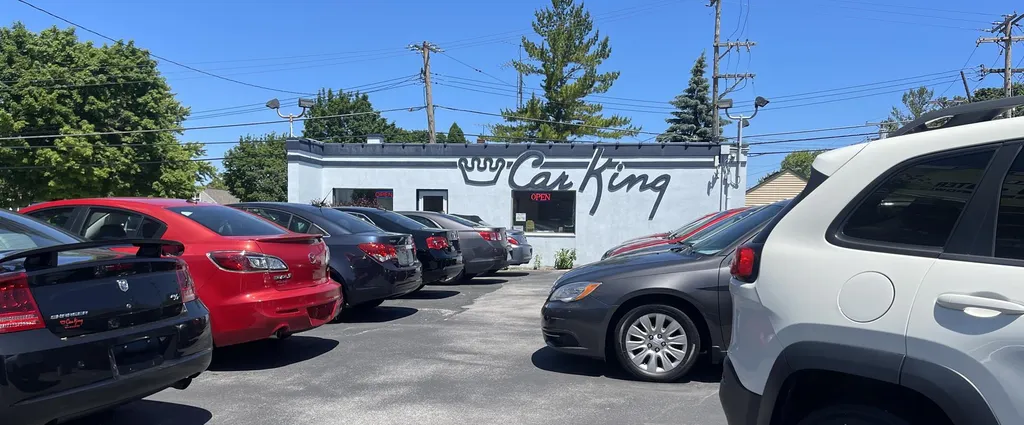The automotive market in the USA offers a range of options, particularly in the realm of used cars. Among these choices, understanding the distinctions between rebuilt and salvage titles is essential for potential buyers. This knowledge can protect your investment and ensure a smoother ownership experience.
The Basics of Car Titles
Before delving into the differences between rebuilt and salvage titles, it’s helpful to understand what car titles signify. A title is a legal document that proves ownership of a vehicle. In the USA, car titles can come with various designations depending on the vehicle’s history, including:
- Clear Title: Indicates that the vehicle has not been significantly damaged and has a clean history.
- Salvage Title: Assigned to vehicles that have been declared a total loss by an insurance company. This typically occurs when repair costs exceed a certain percentage of the car’s value.
- Rebuilt Title: Issued to vehicles that were previously marked with a salvage title but have since been repaired and passed state inspections to prove they are safe for use on public roads.
Unpacking Salvage Titles
Salvage titles are often a red flag for buyers. A vehicle with a salvage title has undergone significant damage, be it from an accident, flood, fire, or theft recovery. The following points summarize key characteristics of salvage titles:
- Insurance Claims: When an insurance company assesses the cost of repairs and determines that it is economically unfeasible to fix the vehicle, they will issue a salvage title.
- Vehicle History: These cars often have a tainted history. Buyers should conduct thorough research and obtain a vehicle history report to understand the extent of the damage.
- Market Value: Vehicles with salvage titles generally have a reduced market value, which can be appealing for budget-conscious buyers. However, the hidden risks can outweigh the initial savings.
Factors to Consider
When considering a used car with a salvage title, keep the following in mind:
- Repair Quality: Assess the quality of repairs made to the vehicle. Not all repairs meet safety standards or are executed professionally.
- Resale Value: Cars with salvage titles are often harder to sell in the future, as many buyers are wary of their history.
- Insurance Challenges: Some insurance companies might refuse coverage or charge higher premiums for salvaged vehicles.
The Journey of a Rebuilt Title
Rebuilt titles come into play after a vehicle that was previously given a salvage title has been repaired and certified roadworthy. Here’s what distinguishes rebuilt titles:
- Restoration Process: To obtain a rebuilt title, the owner must repair the vehicle to a level that meets state safety and operational standards. This often involves inspections by certified mechanics or state officials.
- Documentation: Owners need to provide detailed documentation of the repairs made, including receipts and inspection reports, to prove the vehicle is safe for road use.
- Improved Value: Rebuilt vehicles typically hold more value than their salvage counterparts, as they are deemed operational and safe.
Considerations for Buyers
When evaluating a rebuilt title vehicle, here are some factors that can influence your decision:
- Inspection Reports: Always review the inspection reports to ensure that the vehicle has been adequately restored.
- Mechanical Reliability: Like with salvage titles, the quality of repairs is crucial. Engage a trusted mechanic for an independent evaluation before purchase.
- Potential for Appreciation: A well-repaired vehicle can appreciate in value, particularly rare or classic models that have historical significance.
The Financial Implications
Purchasing a used car, whether it has a salvage or rebuilt title, can have unique financial implications. Here are some points to consider:
- Initial Cost: Salvage title cars are often cheaper, making them attractive for budget-conscious buyers. However, the potential for unforeseen repair costs can make them more expensive in the long run.
- Insurance Rates: Vehicles with rebuilt titles may be easier to insure, but rates can still differ significantly from those of cars with clear titles. It’s wise to shop around for insurance options.
- Financing Options: Many lenders are reluctant to finance vehicles with salvage titles, while rebuilt title vehicles might qualify for loans, albeit at higher interest rates.
Evaluating Your Decision
Choosing between a used car with a rebuilt or salvage title requires a careful evaluation of your needs, financial situation, and risk tolerance. Here’s a summary of what to consider:
- Purpose of the Vehicle: Determine whether you need a reliable daily driver or a project car to tinker with for fun.
- Long-term Value: Assess whether the vehicle’s potential for appreciation or depreciation aligns with your financial goals.
- Investing in Inspections: Consider investing in professional inspections to mitigate the risks associated with purchasing damaged cars.
Evaluating the differences between rebuilt and salvage titles is crucial in the used car market in the USA. Understanding these distinctions can steer you toward a more informed and potentially rewarding purchase. The emphasis should always be on thorough research, proper inspections, and a clear understanding of the vehicle’s history to ensure that you make the best choice.
